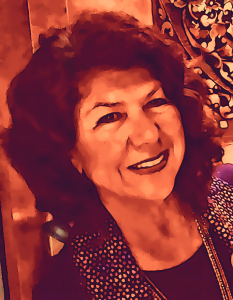196 Letter from Pauline J. Sheldon

Dear Women Tourism Researchers
You have chosen a truly fascinating topic to research. When I started studying tourism from an economic perspective 40 years ago, I had no idea of the multi-faceted, complex and cross-disciplinary nature of tourism. Therein lies its richness. And as a woman you can bring different and more nuanced perspectives that complement those of our male colleagues. As I look back over my career I am amazed at where this work has taken me, both intellectually and geographically. I hope you experience a similarly meaningful and satisfying journey as a woman researcher. Here are a few tips that might be helpful as you navigate your future.
Have meaningful, juicy conversations about life, tourism and research with your colleagues. I feel as though my most meaningful work arose out of deep conversations with good colleagues that pushed the edge. Conversations that asked the big life questions and stretched the mind. Conversations about what tourism really is and what relevant research is needed at a meta-level. Make sure you seek out people you can have these conversations with and don’t be shy about initiating them. Connect and collaborate as much as you can. Such interactions made my research journey so much more enjoyable and meaningful. Nourish the collegiality of other creative researchers, and help others along the way. Learn from other researchers but don’t be overshadowed by them.
Keep up with disciplinary theories and research methods. Keep current with theories and research methods from at least one discipline allied to tourism, whether it be psychology, economics, sociology, geography or management science. Read in these journals, be sure to keep current with new theories, methods and topics. Find co-authors there if you can. Do not allow yourself to be isolated only to tourism research.
Focus your research and become an expert in two, three or four areas. Don’t spread yourself too thinly across many topics. How to choose the areas to work in? One of my mentors once advised me to create a Venn Diagram of my research areas and/or skill sets or those I was interested in. I am so glad I did – it helped me to focus my work. As a hypothetical example, the Venn diagram below shows three research/skill areas: economic modelling, sustainability and island communities. The advice was to work in the areas of overlap because these define your special expertise (e.g. economic modelling of tourism in island communities, or sustainability in island communities, or economic modelling of sustainable tourism). The area where all three overlap is the sweet spot and represents your unique set of skills and interests. Focus here and you will become an expert in an area that probably no-one else is working in.

Find a research partner. A big part of my success has been the people I have worked with. I am grateful for their contributions to my career as co-authors and friends. I was lucky to find co-authors with good research chemistry and similar approaches to research. I found a couple of colleagues who were more than just good researchers to work with. They saw potential in me that I did not see, and actively inspired me to do my best work. They challenged me to do things I would never have done alone. Find yourself someone like that if you can, and let them bring out the best in you.
Push the edge of your own touristic experiences. I always felt that I could not research tourism unless I was out there experiencing it at the edge. Between the ages of eleven and seventeen old when I was living in England, I spent each summer with a family in another European country. Immersed in the family’s culture, language and life patterns I learned so much. Afterwards I was never satisfied with a typical tourism experience. I wanted something on the edge, something that satisfied my curiosity about cultures, languages and the specialness of place. Good tourism research is not desk research, it must be sparked by first-hand experiences.
Know Yourself and Trust Yourself. Write what is truly meaningful to you; what resonates with you. Do not think only about what is likely to get published (although junior researchers cannot totally ignore this). Know your talents and uniqueness and stay true to yourself. You have a unique perspective based on your life experiences, your education and your skills. My best experiences were later in my career when I finally trusted myself enough to bring my whole self to the research – my heart, my mind, and my soul. This is the real potential that women bring to tourism research – the tendency to be more in touch with our holistic and intuitive selves.
Take care of yourself. Looking after your own emotional, physical and mental wellbeing is fundamental to a good career. If you are stressed out and exhausted you will not do your best work. For me, meditation, yoga and breathing practices of the Art of Living Foundation have been my sustenance for decades. I practice every day no matter what. For you it may be something different: running, swimming, getting out in nature, music, art, whatever it is – nourish its presence in your life. Find something that keeps your body healthy, expands your mind, and makes you feel lighter and stronger. Find something that dissolves time and gives you a feeling of being in the flow of life.

Pauline J. Sheldon
University of Hawaii

